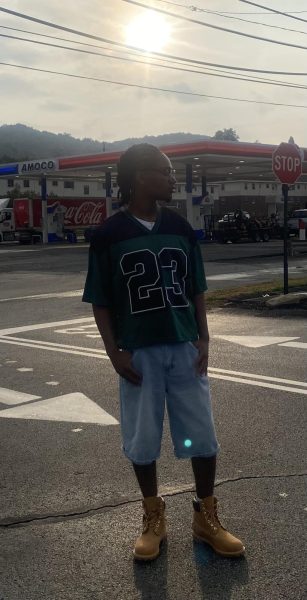Today I need to be real about something that’s been blowing up—literally and figuratively—on social media: the new viral sensation “Pop the Balloon.” It’s fun, quick, and addicting.
Yet we also need to pause and ask ourselves how it’s shaping conversations around Black culture and feeding into weird stereotypes. So, what is “Pop the Balloon”? If you’re new to it, here’s the lowdown: it’s a speed-dating-style game where participants line up, and people get their balloons “popped” based on whether the opposing person finds them attractive or not, and is often based on how they look.
Sounds harmless, right? But let’s dig a little deeper.
While it seems like just another fun, fast-paced social media trend, we have to recognize how easily these types of games can play into superficial judgments. And Arlette Alumi, the undisputed queen of this viral phenomenon, has practically turned it into a fighting sport. With her growing influence, her participation is steering the narrative of what’s “desirable,” setting certain expectations that younger audiences—especially Black kids—are latching onto.
But here’s the problem: “Pop the Balloon” doesn’t just highlight preferences; it amplifies snap decisions based on looks, body types, and often skin color. It’s become a breeding ground for feeding into age-old stereotypes, especially around Black women and men. Black kids, watching and participating in this trend, are sometimes forced to confront painful societal biases, where beauty standards don’t often reflect their own features or culture.
And let’s talk about the men in this challenge for a minute. Not only are they part of the game, but many of them have turned their reactions into performative moments for the sake of “clicks” and views. They come on the show with dramatic reactions—popping the balloons with exaggerated expressions, making rude comments blatantly or just saying “funny” comments—which are all designed to go viral. But what we can’t ignore is how some of these men use this trend as a stage to demean or make fun of Black women, often under the guise of humor or “just playing around.”
These dramatized moments might get views, but at what cost? When Black women are the target, it reinforces harmful narratives that Black women are either “too much” or “not enough.” It’s an old trope that Black women have to navigate daily, and seeing it play out on a platform where we’re shaping our perceptions is damaging.
This trend, and any other trends that use Black people as their gimmick, just feed into this toxic loop where Black women, who already face so much scrutiny in terms of beauty standards and desirability, are put on display just to be mocked or judged harshly.
One worrying aspect is how this trend is reinforcing ideas of quick rejection and judgment in romantic dynamics, something the Black community has already had to navigate for generations in the face of Eurocentric beauty standards. And when Black kids see these older Black figures getting their balloon “popped” for features like darker skin tones or certain body types, it can unintentionally perpetuate feelings of inadequacy, self-doubt, and pressure to conform to someone else’s expectations of beauty.
I’m not saying every fun viral challenge needs to be picked apart for its cultural implications, but we have to think about what trends like “Pop the Balloon” might be doing to the self-esteem and cultural pride of younger Black people like you and me.
At the end of the day, this is just another reminder of how online content can shape our narratives—and we need to be mindful of which parts of our culture we’re elevating or tearing down in the process.
So before you laugh at the next balloon pop video or a dramatic reaction a man makes in it, take a second to reflect on how this growing sensation might be affecting our community and what we can do to make sure we’re not feeding into harmful, outdated stereotypes.
Leave a comment about how you feel, and remember to follow the page on Instagram @DealingWithDiversity


Styled • Sep 5, 2025 at 7:25 pm
I rarely use the word hate but I truly hate everything about this show. I’ve never watched a full episode of it, simply because you can see from a trending reel on IG how demeaning it is to poc. African American women are already globally the least likely candidates to be chosen for marriage statistically, as are Asian men. Sensational entertainment like this reinforces those statistics and once again, poc fail to cognitively consider any of it. Has anyone noticed that there is huge profitability in reducing the image of poc globally? Well, it seems almost every other ethnicity besides poc have.
Carmen Wedderburn Lowe • Aug 28, 2025 at 3:11 am
It’s all pure evil..
BCVC • Jul 11, 2025 at 8:39 am
I haven’t watched too many episodes but one thing that I noticed is that it looks like a slave auction. Just the way that they are lined up to be evaluated.
Megan Groves • May 3, 2025 at 10:11 pm
As a single educated African-American woman I have to be honest and free with the Editor. Just another way to tear woman down. To be honest it’s a shallow show, and it’s only popular because society and social media glorifies vanity to the point of making unnecessary surgeries, be ok. While the same society wants people to be aware of mental health wellness. Ha!!